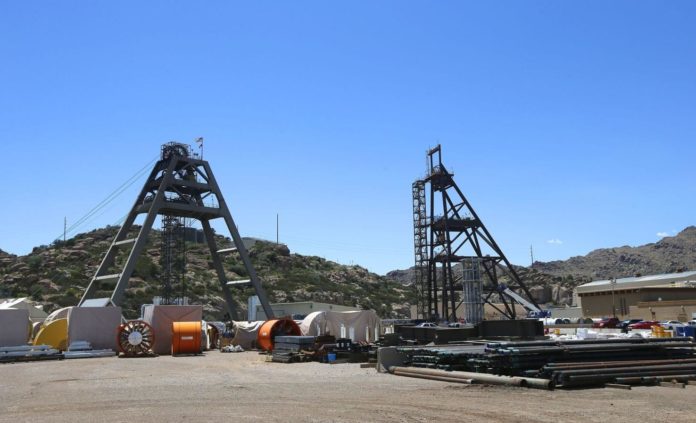
A Native American tribe says they’ll ask the nation’s highest court to consider their case to stop a copper mine on sacred ground.
In a recent decision by the U.S. Ninth Circuit Court of Appeals, the Oak Flat land exchange will continue despite opposition by the San Carlos Apache Tribe.
The site, located upon 2,500 acres in the Tonto National Forest, has been in the process of an ownership change to the mining venture Resolution Copper since 2014. Oak Flat was first designated for exchange by an act of Congress, with legalities stating that the acreage would be exchanged for 5,400 acres elsewhere.
The 2014 decision was most recently challenged by plaintiff Apache Stronghold, a non-profit organization, through the usage of a preliminary injunction. The injunction was struck down in a 2-to-1 decision on June 24th, allowing for a continued land exchange.
Attorneys for the plaintiffs told The Center Square on Thursday that they have until Sept. 24 to appeal the ruling to the Supreme Court.
The court battle, Apache Stronghold v. The United States, fought over the site of a future copper mine by Resolution Copper, a joint venture between Australian companies Rio and BHP. The site’s ore is approximately 7,000 feet underground, which means complete extraction would take 40 years. The company has invested $2 billion in site research and argues that the mine holds enough ore to satisfy 25% of the country’s copper needs for the next 40 years. Currently, 295 employees and contractors are working on the project.
“There is significant local support for the project, however, we respect the views of groups who oppose it and will continue our efforts to understand, address and mitigate these concerns,” said Tyson Nansel in a press release for Resolution Copper.
For the San Carlos Apache Tribe, they are fighting for not just land but religious freedom. Oak Flat, known to them as Chi’chil Bildagoteel, is sacred ground where they believe Ga’an dwell, or messengers between humans and the god Usen.
Apache Stronghold argued that the land exchange violated the Religious Freedom Restoration Act, the First Amendment, and the 1852 Treaty of Santa Fe between the Apache Tribe and the United States.
“We are calling on all religious faiths, & military veterans, for this country was founded on freedom of speech, religion and worship, which has been given away to a foreign mining company,” said Dr. Wendsler Nosie, former chairman of the San Carlos Apache Tribe.
Republished with the permission of The Center Square.













